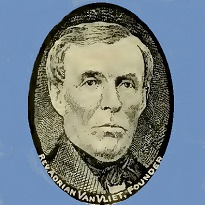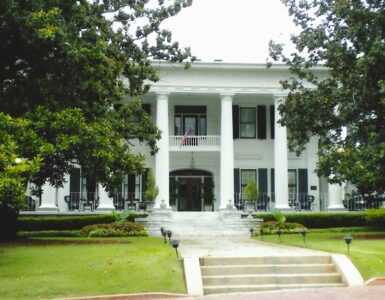 From 1830 to the beginning of the First World War almost ninety percent of all German and German speaking emigrants found their new homes in the United States and during the nineteenth century alone more than five-million emigrated to the United States. Nineteenth-century German immigrants settled all over the nation, but the area from New Jersey west included these settlers with a particularly high distribution in the Midwest north of the thirty-seventh parallel. With the arrival of these numerous new residents, particularly after 1848, the Presbyterians became increasingly concerned for missionary efforts among the relocated residents from Martin Luther’s land and other German speaking countries. An edition of the Westminster Confession of Faith was published by Presbyterians in the German language in 1857 and B. B. Warfield’s articles on the editions of the confession in the Presbyterian and Reformed Review commented that it is was still available in 1901. Ministerial education for German speakers was provided in seminaries in Dubuque, Iowa, founded 1852, and Bloomfield (Newark), New Jersey, founded 1869.
From 1830 to the beginning of the First World War almost ninety percent of all German and German speaking emigrants found their new homes in the United States and during the nineteenth century alone more than five-million emigrated to the United States. Nineteenth-century German immigrants settled all over the nation, but the area from New Jersey west included these settlers with a particularly high distribution in the Midwest north of the thirty-seventh parallel. With the arrival of these numerous new residents, particularly after 1848, the Presbyterians became increasingly concerned for missionary efforts among the relocated residents from Martin Luther’s land and other German speaking countries. An edition of the Westminster Confession of Faith was published by Presbyterians in the German language in 1857 and B. B. Warfield’s articles on the editions of the confession in the Presbyterian and Reformed Review commented that it is was still available in 1901. Ministerial education for German speakers was provided in seminaries in Dubuque, Iowa, founded 1852, and Bloomfield (Newark), New Jersey, founded 1869.
However, the minister that had a great work among Germans, particularly in Iowa, was not a German, but was instead a former soldier and tailor from Holland named Adrian van Vliet. To learn more about his life and pastoral work in Wisconsin and then in Dubuque, Iowa, download below a PDF transcription of the article, “German Presbyterianism in the North-West,” which was published in The Presbyterian, 1863.
There are a few things to note in the article. The Northwest of Adrian van Vliet’s day is the Midwest of today. The theological training school started by him became the German Presbyterian Theological School of the Northwest, (currently University of Dubuque Theological Seminary), which in the article is described as the “Log College of the West” paralleling the Dutchman’s training of divinity students with the earlier work of William Tennent in Neshaminy, Pennsylvania. Missiology of recent years has made much of taking the gospel to people that have entered the United States from other nations, which is well and good, but this methodology is nothing new because it began in the first century in cities such as Corinth, and it was promoted for its practicality by the author of the article available for download. He said—
This could be called the foreign missionary work that has come to our doors from abroad. Why is it not quite as important to preach the gospel to the Germans in America, as to the Chinese in China? And why should we be discouraged any sooner in the former work than in the latter?
With more study of antiquarian Christian newspapers it would likely be found that what might be deemed currently a new and creative ministry is in fact not new at all. However, study of many Christian serials of the past is hampered because their images are on microfilm and they need to be digitized for ready use. Undoubtedly there are other lessons that could be learned from the past.
BARRY WAUGH
Notes—The statistics regarding the German immigrants are from the Library of Congress site for teachers, https://www.loc.gov/teachers. The Warfield articles are in Presbyterian and Reformed Review, October 1901, 606-59; January 1902, 60-120; April 1902, 254-76; July 1902, 380-426; and October 1902, 551-87; there is a bound edition available on Internet Archive. On this site the biography of Augustus W. Loomis, 1816–1891 tells the interesting story of his ministry to Chinese immigrants in California. The image of Dubuque Seminary and Adrian van Vliet are from The Presbyterian Church in Iowa, 1837-1900, by Joseph W. Hubbard, 1907.





